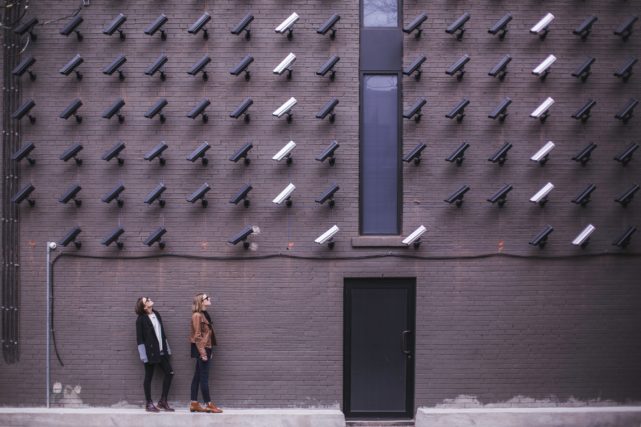According to the Article 20 of the Workers’ Statute (ET) within the power and control of the activity that exercises a management position, an employer may adopt such surveillance and control measures as it deems appropriate,in order to verify that the worker complies with his labour obligations and duties; as long as it keeps the due consideration of human dignity (art. 4 ET).
Regarding the implementation of surveillance cameras in the company, there is no specific legislation regulating the installation and use of these equipment to control the work activity of the work centers. It is the courts that, when dealing with each specific case, must determine the legitimacy of its use or not.
Is it allowed to install surveillance cameras in companies?
First of all, we should define that this is an act of an administrative nature under the Ministry of Employment and Social Security of the Government of Spain.
It is clear from the existing case-law that the placement of these devices – for objective reasons derived from the activity of the company – is possible,in accordance with our legal system and taking into account the power of management granted to the employer.
Therefore, the installation of surveillance cameras to control the work and activity of employeesis allowed, without being considered an infringement of fundamental rights, personal privacy and self-image.
The Constitutional Court has established as a reiterated doctrine that the right to privacy is not absolute – as is none of the fundamental rights, being able to yield to constitutionally relevant interests,for example, when the control and surveillance by video camera is revealed as necessary to achieve the legitimate purpose of verifying the fulfillment of the obligations of a worker. Facilitating to achieve it, to be respectful of the essential content of the right; that is, with the dignity of the worker.
In any case, it is necessary to take into account – for the purpose of considering whether the means of control and surveillance respect the right to privacy of workers; the place where the company installs the surveillance cameras,in addition to other elements such as: whether or not the installation is done indiscriminately, if the cameras are visible or have been installed without anyone’s knowledge, or if there are really objective purposes such as security in the company for the installation of these systems.
General Guidelines for Installing Surveillance Cameras
Some general guidelines to take into account when installing surveillance cameras in a company (and from some examples extracted in different sentences) are:
- Surveillance cameras cannot be installed in those places where the work is not performed. For example: toilets, resting places, trade union premises, etc.).
- Nor in those places of the company where the work activity is carried out there may be illegitimate interference by the employer in the right to privacy of workers, as could happen with the recording of conversations between a worker and a client, or between the workers themselves, in which issues outside the employment relationship are addressed and that integrate the so-called personal sphere of the individual.
- They can not be installed in places considered private:lockers, lockers, rest rooms,… etc.
- It is not contrary to the right to privacy to install a surveillance camera in the checkout and laboratory area of a pharmacy for suspicion of irregularities of a person. Therefore, it is possible to install it.
- Surveillance cameras may not be used for purposes other than the control of work activity,including the non-publication or dissemination of the images captured.

Legitimate installation of surveillance cameras
Things to keep in mind that for the installation of surveillance cameras is legitimate and respects the fundamental right of workers to their dignity / privacy.
- That there is a justified reason for safety or control of the work activity.
- That there is no other procedure or less incisive means, for the personal sphere of the workers and that it achieved the same purpose.
- Its location will be only in workplaces and not in places of personal or private own use.
- Equal use of the facilitieswill be sought, avoiding unjustified discrimination in their installation and / or operation (objective criteria, if possible).
- There will be a communication in good time to the staff or to the legal representatives of the staff (Works Council or Staff Delegates), since they have the right to be informed and consulted on business decisions regarding the organization and control of work, according to article 64.5 of the ET. Such communication should specify the characteristics of the equipment to be installed, its purpose and other details of interest to workers.
- The staff shall be informed in advance of the measure taken,as well as of the place of location and the system of operation (only capture of images, or images and sound, only recording or also reproduction, etc.).
Use of surveillance camera recordings (for evidentiary purposes)
With regard to labor procedure, article 90 of the Law Regulating Social Jurisdiction specifically recognizes the validity of evidence through these means, establishing that the parties may avail themselves of all means of proof that are regulated by law, admitting as such the mechanical means of reproduction of the word, of the image and sound, unless they have been obtained directly or indirectly through procedures that involve a violation of fundamental rights or public freedoms.
conclusion
For the implementation of surveillance cameras in a company, it is necessary to always take into account the purpose of their installation.
And also, correctly communicate to employees this facility, so that there is no confusion about it and that they do not feel vulnerable in their workplace.








